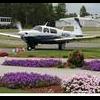Ditching at Night....are you prepared for it?
-
Members Online
- jamesyql
- Yugow
- shawnd
- Jeff Uphoff
- BillyT0020
- hypertech
- 0TreeLemur
- hubcap
- 201Steve
- Brian E.
- N201MKTurbo
- kortopates
- KZNY
- Jay67F
- Skates97
- 1980Mooney
- Schllc
- Gilt
- 201Mooniac
- Justin Schmidt
- GeeBee
- M20F
- Marc_B
- Jason 1996 MSE
- jeremyc209
- GoDemonDeacons
- Peter T
- MDMooney
- Beechbum
- Brian2034
- Culver LFA
- Mooney in Oz
- Wes
- jcolgan
- MikeOH
- MB65E
- DanM20C
- eman1200


Recommended Posts
Join the conversation
You can post now and register later. If you have an account, sign in now to post with your account.